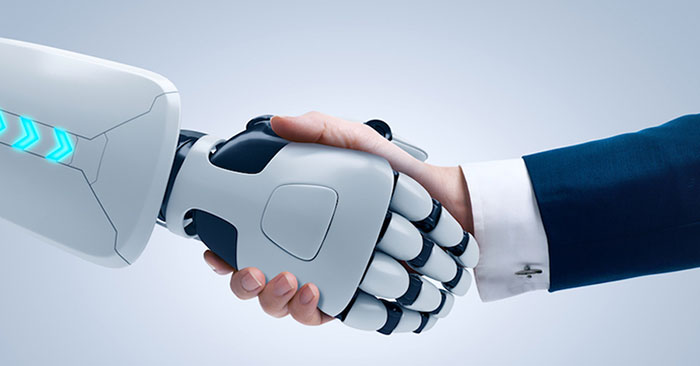Demystified: 5 Biggest Myths of AI for CIOs
Growth-hungry Enterprises across all industries gear-up to utilize the power of cloud and AI, to accelerate performance and transform their business. Gartner revealed that, by 2020 machines will perform 85% of consumer interaction. Undoubtedly, CIOs will play the important role in defining the AI strategy and its implementation.
Some organizations have used Artificial Intelligence for great success. In Food Services, for example, thanks to “Azure ML based customer service,” the company was able to increase sales & customer satisfaction simultaneously and streamlined back-end operations over time. However, there are few limits to Artificial Intelligence solutions as well, especially if there is no data available or if the data is of low quality. By kickstarting innovation, CIOs in association with business peers can jointly determine the best way to use AI technologies in their industry. They can actively monitor for emerging AI solutions that are built from the lessons learned out of experiments.

Recent breakthroughs in big data, machine learning, speech recognition, computer vision and voice recognition are increasingly growing the potential of AI. However, AI demands a new way and new skills to think about the problems. And, CIOs must defeat some myths of AI to lead in this digital transformation world.
-
Get an AI to solve the problems
'AI' is a concept and a collection of technologies, which are used in business solutions to add particular functional capabilities. So, enterprises do not require ‘an AI’ but the business solutions in which AI technologies can help yield accelerated business outcomes. In short, importantly, CIOs should understand how AI tools can help boost business and achieve business goals.
-
AI can work effectively on any or all the messy data
For any AI tool, most prominently input is the data. The relevant data like customer demographics, product usage, daily transactions, social media insights etc., can help in creating the strong data foundation. The access of ongoing real-time data is also significantly important for the successful AI implementation. With advanced analytical methods like deep learning & machine learning applied on the relevant data, many AI capabilities like image processing, natural-language processing (NLP), voice recognition, etc., can be embedded in existing applications. CIOs need to pursue these top leading-edge uses of AI to achieve improved efficiency, increased competitive advantage and greater customer intimacy.
Check how a fast-growing Manufacturing & Water Utility company deploys a Data management and Smart Analytics system using a plethora of Azure services like Azure stream analytics, and Azure storage. The solution provides real-time & predictive analytics from the water consumption data derived from 500,000 IoT based smart meters. Read the full story here.
-
AI development is a giant leap (requires a huge budget, data scientists, and machine learning experts)
In fact, nowadays, many AI tools are increasingly available for the businesses and do not require a huge investment for implementing AI solutions. For example, Amazon’s Alexa has already resolved the tough problem of voice recognition and noise removal. The business houses can opt them to adopt AI for enterprise applications based on the business requirements.
On the other side, AI development requires the deep expertise in programming language and techniques. However, that does not mean CIOs require a data scientist. It’s all about implementing the algorithms. CIOs can easily achieve it by offering the training to the existing development team as well.
-
Terms "Automation" and "AI" are interchangeable
Automation is merely a process of carrying out a specific task with minimum or no human interaction, whereas AI is a collection of technologies used in systems, solutions or applications to add some specific capabilities. AI is not designed to perform only predefined or configured tasks. But, it can be used to constantly identify the pattern from the experience, just like a human being, and responses according to the situation.
-
AI requires special skills or technical competency
Nowadays, AI runs our daily and online lives largely. In many cases, it is present on social media platforms or websites that we utilize every day. Whether it is Netflix or Amazon, they use AI in movie suggestions or recommendations. Hence, it is better to understand how to employ AI technology to supplement and transform the processes and work. CIOs can explain their counterparts that AI does not require any technical knowledge for enterprise AI adoption and to bring AI solutions into play.
The Bottom Line
According to the PWC Report, by 2030, AI and the related technologies will add minimum $15.7 trillion to the international GDP. Right now, CIOs must begin to take advantage of AI opportunities to lead and realize the benefits of it in this world of digital business.
AI has made tremendous strides to reach a near natural level of interaction with chatbot as a feature to embed in enterprise applications.
Enterprise chatbots are increasingly boosting customer interaction and yet managing to keep costs down owing to reduced manpower for asset-intensive and field-force driven enterprises. Know why enterprise chatbots deliver deep impact from the reasons listed
here.